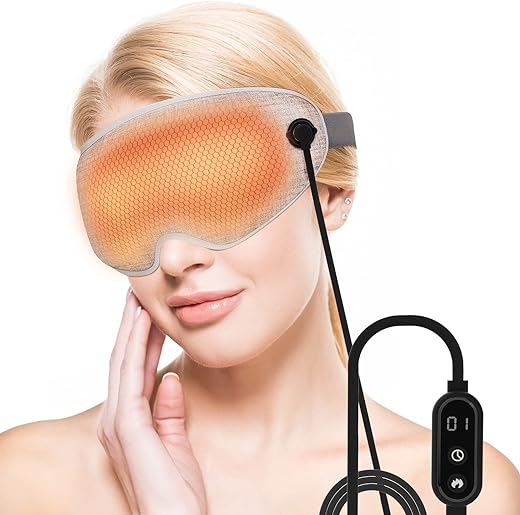This step-by-step guide will walk you through creating a personalized bedtime routine tailored to promote better sleep and relaxation. By incorporating mental relaxation techniques into your nightly rituals, you can address issues like insomnia, restlessness, and stress. Whether you have trouble winding down after a long day or find it hard to fall asleep easily, this guide will provide practical strategies to unwind, de-stress, and prepare your mind and body for a restful night’s sleep. Say goodbye to sleepless nights and hello to a rejuvenating bedtime routine that will leave you feeling refreshed and revitalized each morning.
Calm Your Mind with Top Picks
Understand the Importance of a Bedtime Routine
–Establish Consistent Sleep Patterns: Create a calming pre-sleep routine that signals to your body it’s time to wind down.-Minimize Stimulants: Avoid electronics an hour before bed to promote restful sleep.-Promote Relaxation: Incorporate activities such as reading or gentle stretching into your routine to reduce stress.-Benefit from Better Sleep Quality: By establishing a bedtime routine, you can improve your sleep, wake up feeling refreshed, and boost your overall well-being.
Set a Consistent Sleep Schedule
- Establish a regular bedtime and wake-up time: Set a specific time to go to bed and wake up every day.
- Create a bedtime routine: Develop calming habits leading up to bedtime, such as reading a book or taking a warm bath.
- Avoid stimulants: Stop using electronic devices and consuming caffeine at least an hour before bedtime to signal your body that it’s time to sleep.
Create a Relaxing Pre-Bedtime Routine
Create calming activities to wind down before bedtime. Engage in reading, meditating, or taking a warm bath to signal your body to relax. Steer clear of stimulating activities that can disrupt your sleep, such as screen time. Prioritize relaxation and establish a tranquil routine for a restful night’s sleep.
Prepare Your Sleep Environment
- Keep your bedroom cool, dark, and quiet by lowering the thermostat, using blackout curtains, and soundproofing if necessary.
- Invest in high-quality, comfortable bedding and check that your mattress and pillows offer adequate support for a good night’s sleep.
- Remove any distractions such as electronic devices, bright lights, or noisy gadgets from your sleeping area. Create a calm and relaxing environment conducive to quality rest.
Limit Caffeine and Heavy Meals Before Bed
- Minimize caffeine intake before bedtime by avoiding stimulating drinks like coffee, tea, or soda.
- Choose light evening snacks like yogurt, fruits, or crackers if you experience hunger close to bedtime.
- Finish eating at least two hours before bed to give your body enough time to digest the food properly.
Practice Relaxation Techniques
- Deep Breathing: Sit or lie down comfortably and slowly inhale deeply through your nose, allowing your chest and then your belly to rise. Exhale slowly through your mouth, emptying your lungs completely. Repeat this deep breathing exercise for a few minutes to relax your body and ease your mind.
- Progressive Muscle Relaxation: Start by tensing specific muscles in your body, such as your fists or shoulders, for a few seconds, then release the tension and focus on the feeling of relaxation. Move systematically through various muscle groups, tensing and then relaxing each one. This technique helps release physical tension and promotes a sense of calm.
- Gentle Yoga Stretches: Find a quiet space where you can stretch comfortably. Perform gentle yoga poses or stretches focusing on areas that feel tight or tense. Pay attention to your breath and the sensations in your body as you hold each stretch. This practice can help release physical and mental tension, preparing you for a restful sleep.
Wind Down Your Mind
- Write down any worries or to-do lists: Jot down all your worries and things you need to do before going to bed. Get them out of your head and onto paper to clear your mind for better rest.
- Consider journaling or practicing gratitude: Spend a few minutes writing in a journal about your day or things you’re grateful for. This process can help shift your mindset towards positivity, leading to a more peaceful night’s sleep.
Limit Screen Time Before Bed
- Put away electronic devices out of reach at least 1 hour before bedtime.
- Engage in screen-free activities like reading a book, meditating, or listening to calming music.
- Create a relaxing bedtime routine to prepare your mind and body for sleep.
Reflect on Your Progress
- Assess your bedtime routine weekly. Reflect on factors such as duration, relaxation techniques, and screen time before bed to gauge its impact on your sleep quality.
- Modify your routine accordingly. Consider adding calming activities like reading or meditation, limiting exposure to screens, or adjusting your sleep environment to achieve a better restorative sleep experience.
- Track the changes you make and their effect on your sleep patterns and overall well-being. Experiment with adjustments until you find a routine that promotes better sleep and enhances your physical and mental health.
Sweet dreams await you!
In conclusion, by incorporating elements such as a consistent sleep schedule, creating a calming environment, incorporating relaxation techniques, and avoiding stimulants before bed, you can develop an effective bedtime routine for improved sleep and relaxation. Remember, the key to reaping these benefits lies in consistency and prioritizing self-care. By making small changes and committing to a healthy routine, you can transform your sleep habits and overall well-being. Your body and mind will thank you for investing in a bedtime routine that promotes quality rest and rejuvenation.
Creating Your Routine
Effective Strategies for Destressing and Calming Your Mind
- Find a quiet and comfortable space: Choose a quiet spot where you can relax without distractions. Sitting or lying down can help you get comfortable and focused
- Practice deep breathing exercises: Take slow, deep breaths in through your nose, hold for a few seconds, then slowly exhale through your mouth. Repeat this process several times to help calm your mind and body
- Try progressive muscle relaxation: Starting from your toes, tense each muscle group for a few seconds, then release. Gradually work your way up your body, focusing on each muscle group to release tension and promote relaxation
- Engage in guided imagery: Close your eyes and imagine a peaceful and calming place, focusing on the sights, sounds, and sensations you would experience. Immersing yourself in this mental image can help reduce stress and induce relaxation
- Practice mindfulness meditation: Focus your attention on the present moment, acknowledging and accepting your thoughts and feelings without judgment. Keep yourself grounded in the here and now to cultivate a sense of inner peace and relaxation
Enhance Your Well-being: Mental Relaxation FAQs
What are some ways to incorporate aromatherapy into mental relaxation routines?
To incorporate aromatherapy into mental relaxation routines, one could use essential oils in a variety of ways. Some options include using a diffuser to fill the room with a calming scent, adding a few drops of essential oil to a warm bath, or applying diluted essential oils to pulse points or on a tissue to inhale.
Additionally, using a scented candle, creating a homemade room spray with essential oils, or using an aromatherapy rollerball on the wrists and temples can also help promote relaxation and reduce stress levels.
It is important to research and use essential oils safely and consult a healthcare professional if needed. Aromatherapy can be a valuable tool in enhancing mental well-being and promoting a sense of calm.
How does listening to calming music contribute to mental relaxation?
Listening to calming music can have a significant impact on mental relaxation. Studies have shown that listening to slow, soothing melodies can lower heart rate, reduce blood pressure, and decrease levels of the stress hormone cortisol. Melodies with a slow tempo and soft tones can help to activate the parasympathetic nervous system, promoting a state of relaxation and ease the mind. Additionally, focusing on the music can distract individuals from anxious or racing thoughts, allowing them to unwind and enjoy a sense of tranquility. Overall, incorporating calming music into one’s routine can help promote mental relaxation and improve overall well-being.
What role does mindfulness practice play in mental relaxation?
Mindfulness practice involves focusing one’s awareness on the present moment while acknowledging and accepting feelings, thoughts, and bodily sensations. This practice is known to reduce stress, anxiety, and negative emotions, ultimately leading to mental relaxation. Studies have shown that incorporating mindfulness into daily life can improve overall well-being, concentration, and resilience to difficult situations. By cultivating self-awareness and presence, mindfulness helps individuals let go of worries about the past or future, promoting a sense of calm and relaxation in the mind.
How can a healthy sleep routine influence mental relaxation and overall well-being?
A healthy sleep routine plays a crucial role in promoting mental relaxation and overall well-being. During sleep, the body gets the opportunity to rest, repair, and rejuvenate itself. This process helps in regulating hormones, stabilizing mood, and strengthening cognitive function.
Getting enough quality sleep can improve concentration, productivity, and memory. It also allows the brain to process emotions and experiences effectively, reducing stress levels and promoting mental well-being.
Moreover, a consistent sleep schedule can regulate the body’s circadian rhythm, which in turn enhances overall physical health, immunity, and energy levels. By prioritizing sleep and maintaining a good sleep routine, individuals can significantly impact their mental relaxation and overall sense of well-being.
How can deep breathing exercises help in promoting mental relaxation?
Deep breathing exercises can promote mental relaxation by activating the body’s relaxation response. When a person engages in deep breathing, it signals the brain to calm down and triggers a state of relaxation. This reduces the production of stress hormones like cortisol and lowers the heart rate, helping to alleviate feelings of anxiety and tension. Deep breathing can also increase the supply of oxygen to the brain and stimulate the parasympathetic nervous system, which is responsible for promoting a sense of calm and well-being. By incorporating deep breathing exercises into their routine, individuals can experience mental relaxation, improved focus, and a greater sense of overall well-being.
What are the benefits of spending time in nature for mental relaxation?
Spending time in nature has multiple benefits for mental relaxation. It can reduce stress, anxiety, and symptoms of depression. Immersing oneself in natural surroundings can help lower cortisol levels, improve mood, boost concentration, and enhance overall well-being. Nature provides a peaceful environment that allows a person to disconnect from everyday stressors and improves cognitive function. Fresh air and greenery also promote physical activities like walking or hiking, contributing to better physical health which in turn benefits mental well-being. Overall, nature has a restorative effect on the mind, helping individuals feel more rejuvenated, relaxed, and mentally refreshed.
















After implementing a bedtime routine, I have noticed a significant improvement in my overall sleep quality. It has truly made a difference in my daily life. Thank you for the helpful tips!
I’m thrilled to hear about your success in improving your sleep quality! Your feedback is valuable, and I appreciate you sharing your positive experience.
Could you provide troubleshooting tips for when it’s difficult to fall asleep even after following all the steps in the guide? I sometimes struggle with insomnia despite having a bedtime routine.
I have been struggling with winding down my mind before bed. Do you have any advanced tips or techniques to calm racing thoughts and promote relaxation?
Winding down the mind can be challenging. Advanced techniques like mindfulness meditation, journaling, or progressive muscle relaxation can help calm racing thoughts. I will consider covering these in more detail in future articles. Thank you for reaching out!
I’m interested in learning more about the effects of technology on sleep quality. Could you offer specific recommendations on how to limit screen time before bed effectively?
I’ve tried setting a consistent sleep schedule, but I find it hard to stick to it every day. Are there any strategies you recommend for maintaining the schedule more effectively?
Sticking to a consistent sleep schedule can be challenging. One strategy is gradually adjusting your bedtime and wake-up time by small increments each day. This can help your body adapt more easily. Thank you for bringing up this point!
I’ve found that preparing my sleep environment with a white noise machine has significantly improved my quality of sleep. Do you have any other recommendations for creating a sleep-friendly environment?
Using a white noise machine is a great idea! Other recommendations include investing in blackout curtains, comfortable bedding, and keeping the room cool and dark. Thank you for sharing your success story and recommendation!
Thank you for your feedback! Incorporating essential oils can indeed enhance the relaxation experience. I will consider including tips on using essential oils in future articles.
I found this guide extremely helpful in improving my sleep quality. I would love to see some tips on incorporating essential oils into the pre-bedtime routine for relaxation.
I would love to see variations or alternative approaches to relaxation techniques. Different methods work for different people, so having a variety of options would be beneficial.
Variety in relaxation techniques is important as they can vary in effectiveness for individuals. I will explore different relaxation methods and offer variations in future articles. Your suggestion is much appreciated!